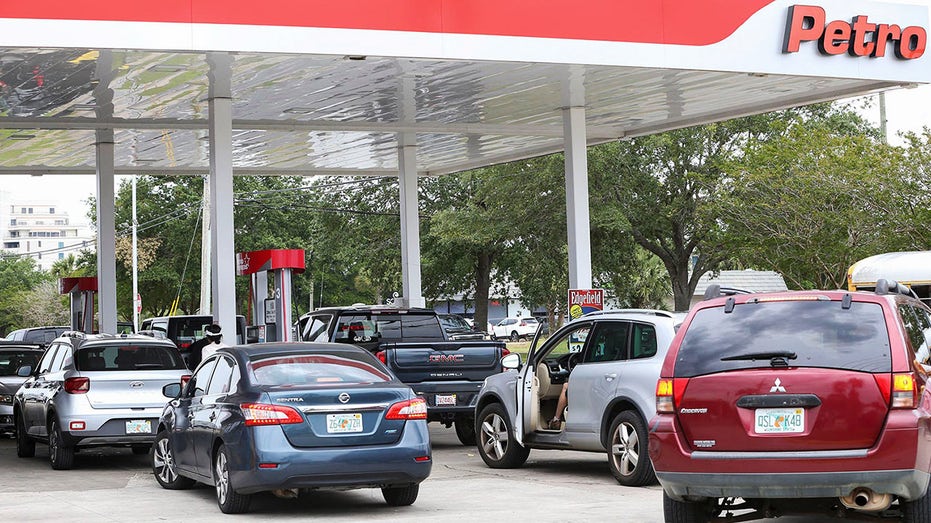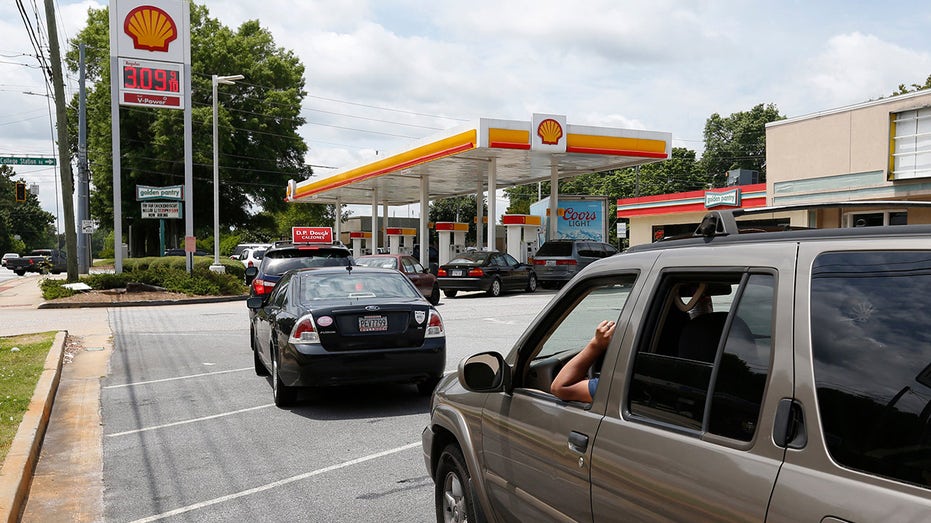To alleviate fuel shortages, EPA issues 'emergency fuel waiver' to 12 states, DC
Shutdown created 'extreme and unusual fuel supply circumstances'
Gas shortages hitting the East Coast after Colonial Pipeline hack
The East Coast is seeing a gas shortage due to the Colonial Pipeline cyberattack, resulting in a hike in prices. FOX Business' Edward Lawrence with more.
The Environmental Protection Agency (EPA) issued an "emergency fuel waiver" to alleviate fuel shortages in a number of states impacted by the ransomware attack on the Colonial Pipeline.
To free up more fuel for drivers, the agency waived fuel standards for 12 states and the District of Columbia on Tuesday amid a prolonged shutdown of the vital U.S pipeline. This includes areas of Maryland, Pennsylvania, Virginia, Alabama, Delaware and Georgia and specific counties in Florida, Louisiana, Mississippi, North Carolina, South Carolina and Tennessee.
CLICK HERE TO READ MORE ON FOX BUSINESS
As a result, the states will be able to sell gasoline that normally would not be allowed due to ozone pollution regulations until May 31, 2021.

Cars crowd at a gas station in the Fort Walton Beach area in Florida. (USA TODAY NETWORK via Reuters Connect)
GET FOX BUSINESS ON THE GO BY CLICKING HERE
The Clean Air Act allows EPA Administrator Michael Regan and the Department of Energy (DOE) to waive certain fuel requirements in an effort to "ensure that an adequate supply of fuel is available, particularly for emergency vehicle needs," according to the agency.
Regan determined that the temporary shutdown of the Colonial Pipeline, which delivers roughly 45% of the fuel consumed on the East Coast, created "extreme and unusual fuel supply circumstances" and forced the agency to take action until "normal supply to the region can be restored."
The pipeline, which carries gasoline and other fuel from Texas to the Northeast, was hit by what Colonial is calling a ransomware attack, in which hackers typically lock up computer systems by encrypting data, paralyzing networks, and demand a large ransom to unscramble it.
COLONIAL PIPELINE GAS SHORTAGES WIDEN: STATE-BY-STATE BREAKDOWN
On Sunday, Colonial Pipeline said it was in the process of restoring some of its IT systems but the partial shutdown had already begun to impact consumers.

Cars line up all the way into the next-door strip mall's parking lot to fill up with gas at the Golden Pantry/Shell station on Barnett Shoals Road in Georgia on May 11, 2021. (USA TODAY NETWORK via Reuters Connect)
By Tuesday evening, images emerged of long lines of motorists at gas stations in Virginia, Florida, North Carolina and Georgia. S&P's Oil Price Information Service put the number of gas stations encountering shortages at more than 1,000.
There were scattered reports of higher gasoline prices, but prices were rising even before the pipeline incident heading into the busy summer driving season.
Fox News' Bradford Betz and The Associated Press contributed to this report





















